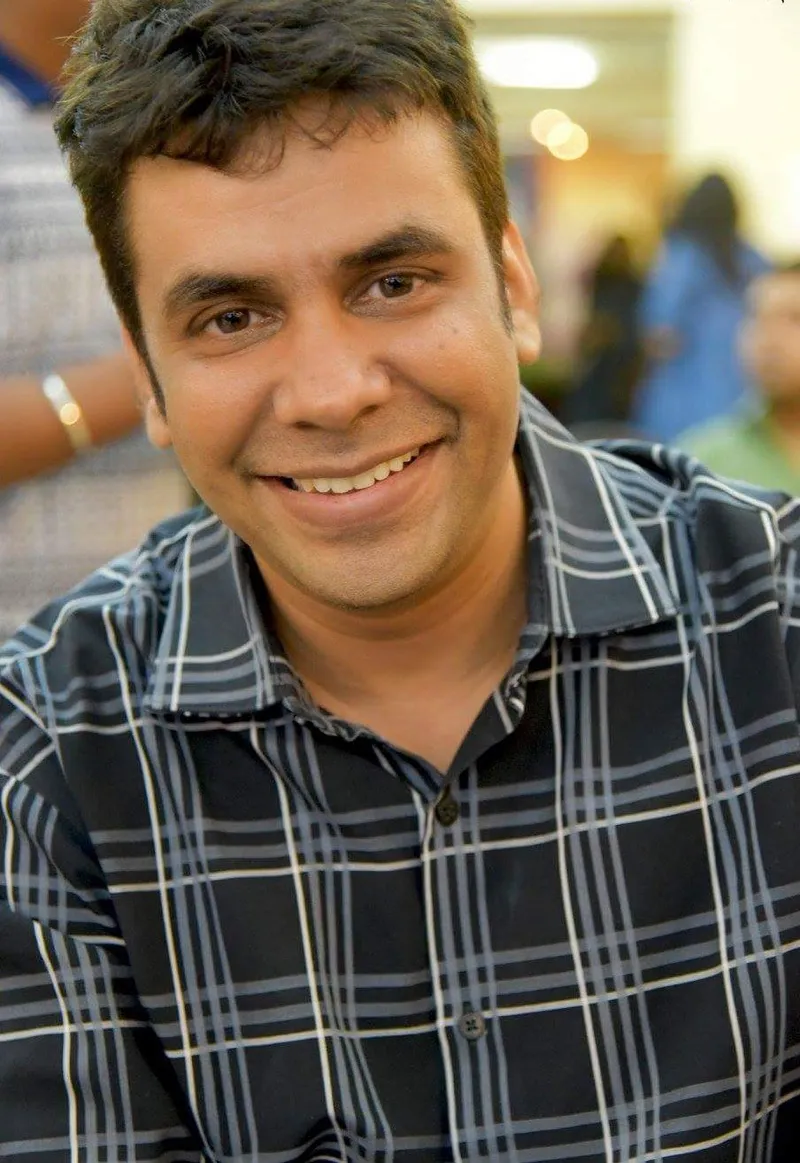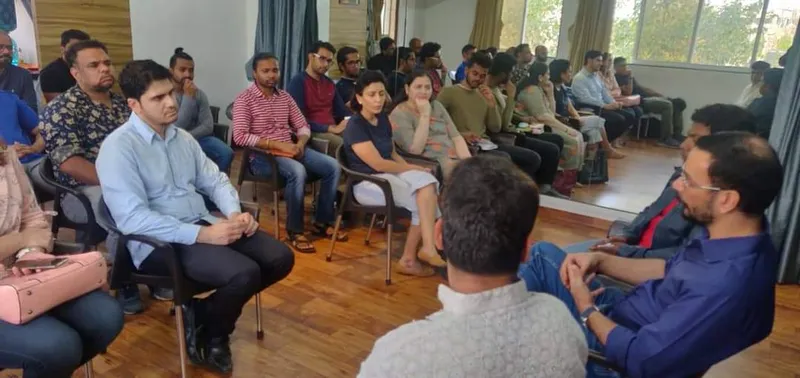Destigmatising mental health, this community lets people know they are not alone
Started by Umang Sheth as a way to deal with his own trauma, The Hugging Club of India empowers thousands struggling with their mental health to reclaim their lives.
(Trigger warning: This article talks about suicide, domestic violence and trauma.)
Many people were forced to confront their mental health during the pandemic. One of them was Kolkata-based Arjun Upadhyay who had been dealing with chronic insomnia, crippling bouts of panic and mental exhaustion for more than seven years. After actor Sushant Singh Rajput’s suicide made national headlines, he found a name for his experiences.
“That was the first time I learned that anxiety, depression and bipolar disorder were health conditions, and not a curse inflicted upon me,” says the BCom student from Kolkata. “More importantly, I learned that they could be recovered from,” he tells SocialStory.
In June 2020, the 22-year-old attended a virtual meeting where people of varying age groups, gender identities and emotional states opened up about their day-to-day battles. As someone who had quietly soldiered through his mental illnesses and sexuality for years—unable to trust even family and friends—this gathering of people instantly struck a chord with Upadhyay, and he spoke for the first time about his own struggles.
”Within this group of strangers, I felt more belonged than I ever had with my closest circle of people,” he says. But he didn’t anticipate that The Hugging Club of India (HCI) would become way more than merely a group of confidantes.
“It is here that I began to seek help, and recover,” says Upadhyay, who identifies as gay.
HCI is a Mumbai-registered non-profit with a presence all over India. Umang Sheth, a public speaker who is the brain and heart behind the initiative, says he is surprised by how big it has become over the last six years since its inception, with more than 1,000 members from across the country.
At its core, the group offers a safe space for people to talk about their deepest fears and hardest struggles with mental health, and let them know they are not alone. The initiative also connects members to suitable therapists and psychiatrists, and sponsors treatment for those who cannot afford it. The community members ensure they have each other’s back and holds weekly meetups—physical and virtual—where members can destress and socialise beyond their mental health struggles.
Tracing trauma
For Sheth, starting HCI in 2017 was an urgent attempt to shoulder support to those struggling with mental illnesses, after he lost his friend to suicide.
“He had been depressed for years, but no one—including his friends and family—had an inkling about it. He was 40, gay and had been left by his partner,” says Sheth. “But what hit my conscience hard was the fact that he couldn’t find a single safe space where he could share his struggle. As a world, we are interdependent, and yet have the individual power to reclaim our lives.”

Umang Sheth, Founder, Hugging Club of India
At 50, Sheth is a content writer and founder of Gay Bombay, a support group for the LGBT community that he pioneered 25 years ago. His work largely involves helping people struggling with various mental health issues to overcome self-stigmatisation and become agents of change.
Much of what he learned about strength, agency and recovery comes from his own life experiences, especially from the unending trauma he suffered during his childhood.
The younger of two siblings, Sheth grew up with a mother who suffered from schizophrenia and a father who had bipolar disorder. Throughout his childhood, he witnessed his mother being shamed and taunted for being atypical, and rarely saw his father.
“My mom believed she was speaking to ghosts and spirits. My father was a heavy gambler and never came home. My biggest trauma was sitting every evening hoping he’d come back home. All these things made me a highly codependent child with no self-esteem,” says Sheth.
Codependency is a form of imbalanced relationship in which two people are stuck in self-destructive behaviours.
Sheth harboured intense shame and hatred for his parents growing up until a friend reminded him that they didn’t choose mental illness; it chose them.
“For the first time, I looked at them as people who were suffering, and not inherently bad,” he explains. “This realisation also made me take a relook at my own anxiety and codependency, and understand that if it is a health condition, it must have a cure,” says Sheth, who was the one to take his parents to a psychiatrist.
Safe space
At HCI sessions, psychiatrists and psychologists speak about their own mental health challenges to let members know how common these issues are, but more importantly, how they can be resolved with awareness and treatment.

The group offers a safe space for people to talk about their hardest struggles with mental health, connects them to suitable therapists and psychiatrists, and sponsors treatment for those who cannot afford it.
HCI is supported by Mpower, an initiative of Aditya Birla Education Trust that creates mental health awareness and arranges professionals to engage with its members. “We also have a partnership with Amaha Mental Health Centre that offers its space to us,” says Sheth.
The non-profit has held physical meetings in Pune, Bengaluru, and Hyderabad, and holds virtual meetings twice a week. “I have gotten better with treatment and medication, but what has been most supportive about the HCI community is that there is always someone to check on you when you are feeling low. Often a suicidal or anxious thought is fleeting if someone can intervene and speak to you in that moment. And I have always had this support in the community,” says Upadhyay.
Pune homemaker Kalindi Nikam spoke out about her experience with domestic violence for the first time at an HCI meeting after enduring it for 32 years. Battling severe low self-esteem—which is common among survivors of domestic violence—coupled with a lack of family support, it took Nikam some time and effort to open up, but the community gradually empowered her to take a stand at home as well.
“I found it easier to open up to members at HCI, especially because they were also deeply struggling with their own issues. I found a sense of solidarity within the community that I knew could not be built if not for people’s lived experiences,” she says. “I’m now on medication, have started Zumba and feel worthy of a better life.”
Sheth says he is working on giving a structural form to HCI, with a board of directors and advisors.
“I didn’t imagine it to become this big when I started it,” he remarks. “All I had were the lessons I had learned through my own adversities and a tryst with Buddhist philosophy—which says you are responsible for your life—no matter how intense the trauma or the illness. I have learned to reclaim my life by owning my choices and understanding that I cannot control what other people think or say about me. These are values I try to pass on to our members at HCI as well,” Sheth signs off.
Edited by Kanishk Singh






